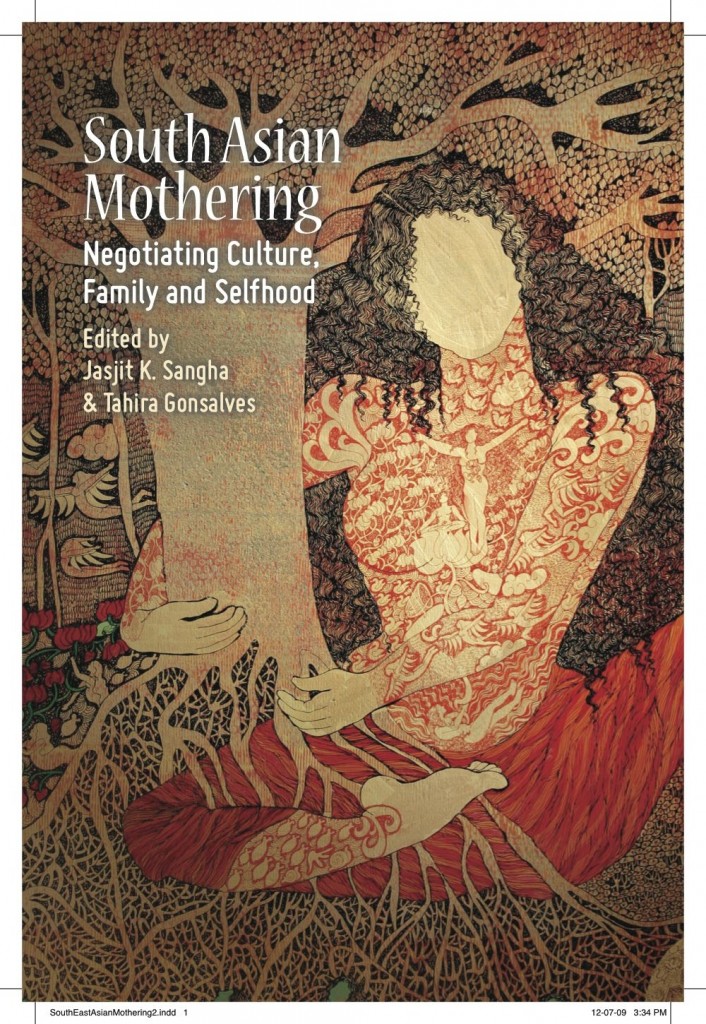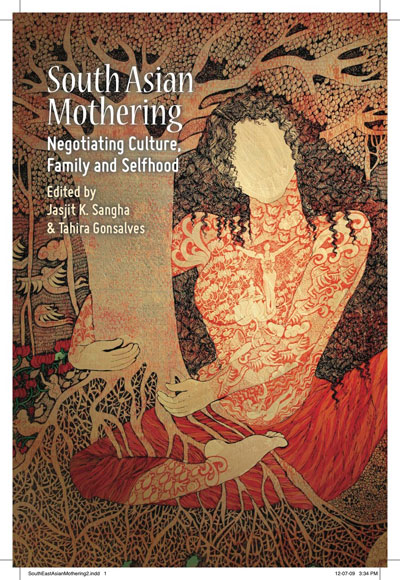 Motherhood in any culture isn’t easy but can be especially challenging when you’re a stepmom. Columnist Jasjit Sangha, writes our ‘stepmothering’ column each month about the challenges and triumphs associated with being a stepmom in a mixed family. What you might not know, is that she’s one of the editors of a remarkably revealing book entitled ‘South Asian Mothering’. She sat down for an interview about the inspiration behind the book, the topic and the growing need for dialogue.
Motherhood in any culture isn’t easy but can be especially challenging when you’re a stepmom. Columnist Jasjit Sangha, writes our ‘stepmothering’ column each month about the challenges and triumphs associated with being a stepmom in a mixed family. What you might not know, is that she’s one of the editors of a remarkably revealing book entitled ‘South Asian Mothering’. She sat down for an interview about the inspiration behind the book, the topic and the growing need for dialogue.
South Asian Mothering
Edited by Jasjit K. Sangha and Tahira Gonsalves
Demeter Press
MM: What inspired you to develop this book?
I was inspired to put this book together because I wanted South Asian mothers’ voices to be heard and their experiences as mothers to be validated. I wanted to show the complexity of negotiating culture and family, as well as dispel stereotypes about South Asian women being passive, docile or not having power. When I started this project I was finishing up my PhD and I had spent a lot of time poring over literature on mothering. I looked at academic and non-academic sources, newspapers, websites, blogs, etc. and I found very little work on mothering written by South Asian women. This was before masalamommas was created so there really was no central resource that brought together writing by South Asian mothers from around the world.
When I spoke to South Asian women about my ideas for this book, the reception was very positive. Many mothers felt some degree of pressure or expectation around what it meant to be a “good South Asian mother”, based on cultural messages they received while growing up – i.e. mothers should be the primary caregivers for their children, selfless and devoted to their husband and family. For many South Asian mothers, their culture was an integral part of their identity, yet they struggled with reconciling the messages they grew up with and the realities of their daily lives.
For example: being the “primary caregiver” meant you felt guilt for taking any time for yourself; being “selfless” while working full-time meant you were perpetually exhausted; and being “devoted” to an abusive or controlling husband was extremely harmful. This confusion was especially felt by mothers who experienced stigma in the South Asian community due to reasons such as: being in a same-sex relationship, having a disabled child, having mental health concerns or marrying interracially. What most of the South Asian mothers I spoke to really wanted was a chance to speak openly about their experiences, without fear of backlash or judgment from the South Asian community about their practice of mothering. For some of the mothers my co-editor and I interviewed, these concerns about negative consequences led to requests for anonymity.
MM: Can you tell us how the book answers some of the key questions around mothering for South Asian moms?
The fourteen chapters in this book explore many key concerns faced by South Asian mothers. Firstly, several chapters in this book show how both newcomer and second-generation South Asian mothers try to transmit culture to their children and highlight how they overcome the challenges they may face when doing so.
Secondly, this book exposes how South Asian mothers push back against attempts to subordinate them when they face discrimination for reason such as: trying to enter the job market as a new immigrant; racial profiling of Muslims post 9/11; being a queer mother or having a disabled child. Thirdly, this book looks into the mental health needs of South Asian mothers, and the kinds of supports that are needed for them, especially when they are vulnerable due to factors such as: family conflict and violence; isolation and loss of a sense of belonging as a new immigrant; or having a very sick child. And lastly, this book answers questions about how South Asian mothers assert their power and retain their sense of self, despite constraints they face due to reasons like pressure to maintain the family’s izzat (honour) or hierarchy within the joint family.

Jasjit Sangha
MM: What do you think is the reason why we need a “South Asian mothering” tool
I think we need a resource such as this book so we can initiate an honest and open dialogue about some of the stresses that we face as South Asian mothers trying to negotiate cultural expectations, our family, our work, and our own needs. I also think we need to bring issues to the forefront that are rarely discussed in our community, such as: sexuality and same sex relationships; family conflict and violence; disability; mental health; and interracial marriage with a non-white person. When I was putting together this book, it was very hard to find contributors who were willing to discuss real life experiences that were outside the “norm”. This was because they had already felt elements of conservatism in the community, and they did not want any more negative attention being brought to them or their family.
MM: Why don’t moms talk about mothering?
I think South Asian women do not talk about mothering because they are afraid of being judged or ridiculed. We are socialized to think that it is our fault, as mothers, if they are any issues or problems in our family, so we can feel intense guilt when issues do come up. We feel like we can talk about the successes, and the happiness and joy, but not the hardships or the obstacles. I know when I was facing difficulties as a stepmother, as I chronicled in my book “Stepmothering A Spiritual Journey” it was really hard to talk about what was happening in my family within the South Asian community. Partly I felt like I was burdening people with my problems, and partly I felt like I had failed as a stepmother and it was because of my shortcoming my family life was not perfect. When the reality is, that nobody’s family life is perfect and we all experience hardships, on an ongoing basis. I am hoping that through resources like this book and websites like masalamommas more South Asian mothers will feel like they can talk more freely about all aspects of their lives as mothers and offer support to each other.
You can access more info about the book and purchasing it here: www.demeterpress.org/southasianmothering.html



[…] Read more of the interview here. […]
Very interesting and timely book on South Asian mothering. Remembering that South Asia refers to seven countries with hundreds of languages and cultures. Every culture has their own nuanced understanding and expectation about mothering. I hope this books take forward the understanding of diversity and commonalities of South Asia.